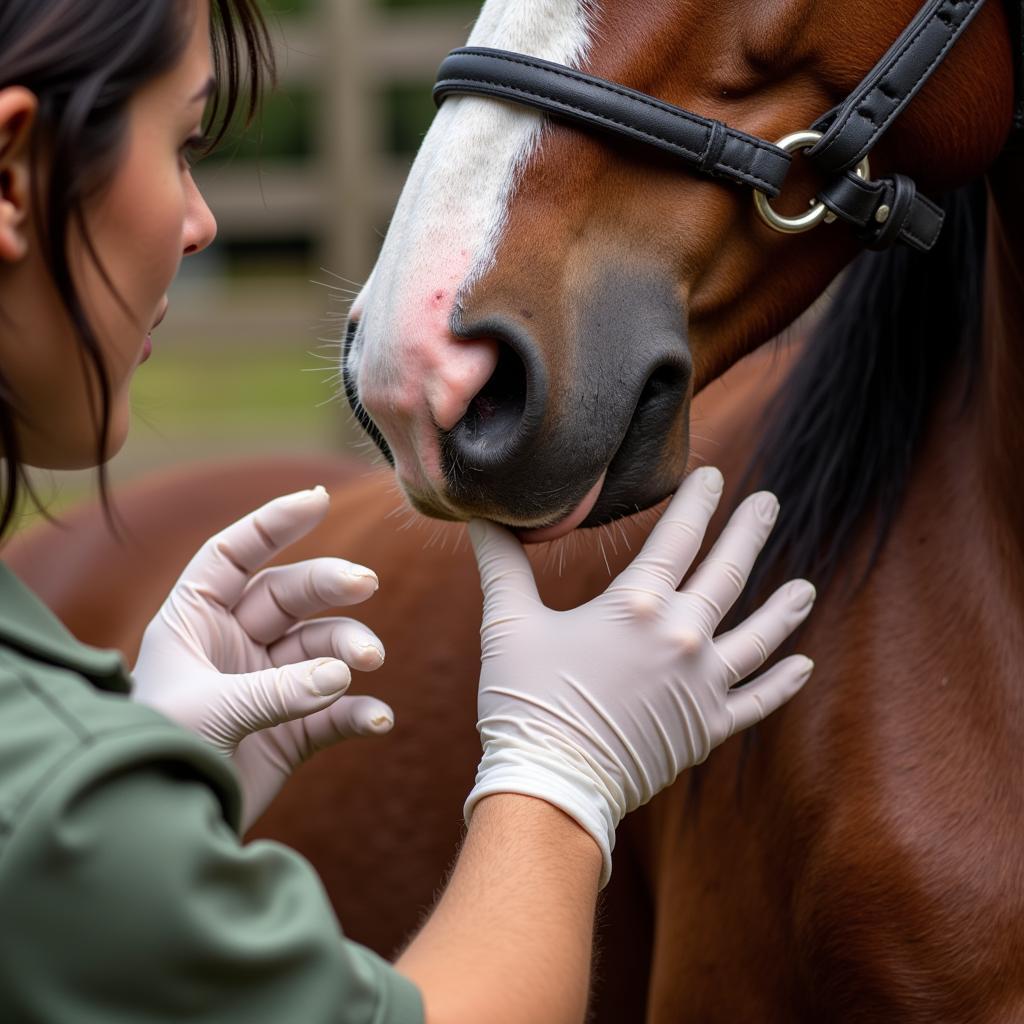Finding the Best Wound Cream For Horses can be overwhelming with so many options available. This guide will help you navigate the choices and make informed decisions about equine wound care.
Understanding Equine Wound Healing
Horses, being active animals, are prone to various injuries, from minor scrapes to more serious lacerations. Understanding the equine healing process is crucial for selecting the right wound cream. Horses heal differently than humans, and their skin is more susceptible to infection. Therefore, choosing the correct treatment is vital for a swift and complete recovery.
Factors Affecting Wound Healing in Horses
Several factors can influence how quickly a horse’s wound heals, including the location of the wound, its depth and severity, the horse’s overall health, and the presence of any underlying medical conditions. For instance, wounds located near joints tend to heal slower due to constant movement. Similarly, deeper wounds require more extensive care and may take longer to heal. udder cream horses can be helpful in certain situations, but it’s essential to consult a veterinarian for appropriate wound care.
Choosing the Best Wound Cream for Horses
When selecting a wound cream, consider the type of wound, its stage of healing, and the potential for infection. Some creams are designed for early-stage wounds, while others are better suited for promoting granulation tissue growth. Dr. Emily Carter, DVM, specializing in equine sports medicine, advises, “Always consult with your veterinarian for the best course of action. They can accurately assess the wound and recommend the most appropriate treatment.”
Types of Wound Creams
There are various types of wound creams available for horses, each with specific properties and benefits. Some common types include antimicrobial creams, which help prevent infection, and creams containing ingredients like hyaluronic acid horse, which promotes tissue regeneration. ssd for horses is another option for certain wound types.
-
Antimicrobial Creams: These creams are crucial for preventing bacterial and fungal infections, especially in contaminated wounds.
-
Hyaluronic Acid-Based Creams: Hyaluronic acid helps to hydrate the wound and create a moist environment that is conducive to healing.
-
Silver Sulfadiazine Creams: These creams are highly effective against a broad spectrum of bacteria and fungi.
What is the best wound cream for a horse with a minor scrape? Antimicrobial creams are generally suitable for minor scrapes.
Applying Wound Cream: Best Practices
Proper application of wound cream is essential for effective healing. Always clean the wound thoroughly before applying any cream. Use clean gloves and apply a thin layer of cream, avoiding excessive pressure.
 Cleaning a Horse's Wound Before Applying Cream
Cleaning a Horse's Wound Before Applying Cream
When to Consult a Veterinarian
While many minor wounds can be treated at home, it’s always best to consult a veterinarian, especially for deep wounds, puncture wounds, or wounds that show signs of infection. Dr. Sarah Jones, DVM, equine surgeon, emphasizes, “Early intervention is key to successful wound healing in horses. Don’t hesitate to contact your veterinarian if you have any concerns.” Using a horse ointment cream or a spray for horse wounds might be suitable in some cases, but professional advice is always recommended.
Conclusion
Choosing the best wound cream for horses requires careful consideration of the wound type, its severity, and the individual horse’s needs. Always consult with a veterinarian for proper diagnosis and treatment recommendations. By understanding the different types of wound creams available and following proper application techniques, you can ensure the best possible outcome for your horse’s recovery.
FAQs
- What are the signs of a wound infection in horses?
- How often should I change my horse’s wound dressing?
- Can I use human wound cream on my horse?
- What are the best ways to prevent horse wounds?
- How long does it typically take for a horse wound to heal?
- What should I do if my horse’s wound is bleeding excessively?
- When should I call the vet for a horse wound?
Need assistance? Contact us at Phone Number: 0772127271, Email: [email protected] Or visit us at QGM2+WX2, Vị Trung, Vị Thuỷ, Hậu Giang, Việt Nam. We have a 24/7 customer support team.